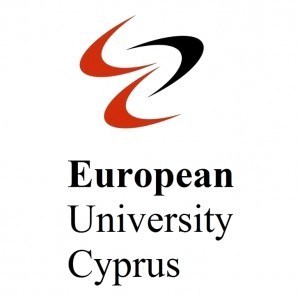Photos of university / #universityofcyprus
The Applied Programme in School Psychology at the University of Cyprus is a comprehensive graduate-level program designed to prepare students for a professional career in educational and child psychology. This program offers an in-depth curriculum that combines theoretical foundations with practical applications, equipping graduates with the necessary skills to support the psychological well-being and development of children and adolescents within educational settings. The curriculum covers key areas such as child and adolescent development, psychological assessment, intervention strategies, special educational needs, counseling techniques, and research methods. Students gain hands-on experience through supervised internships in schools and community settings, enabling them to apply theoretical knowledge in real-world contexts and develop essential professional competencies. The programme aims to train school psychologists who are capable of working collaboratively with educators, parents, and other stakeholders to create supportive learning environments. Graduates will be qualified to assess and address learning difficulties, behavioral issues, and emotional challenges faced by students, thereby promoting inclusive education and mental health awareness. The program also emphasizes ethical practices, cultural sensitivity, and ongoing professional development to prepare students for lifelong careers in school psychology. Upon completion, graduates are well-positioned to contribute to educational policies, design intervention programs, and advocate for the psychological needs of students. The University of Cyprus’s School Psychology program is committed to fostering a rigorous academic environment that encourages research, innovation, and evidence-based practice, ensuring that students emerge as competent and ethical professionals dedicated to improving the educational experiences of young people.
The Applied Programme in School Psychology at the University of Cyprus is designed to prepare students as highly qualified professionals capable of supporting the educational and psychological development of children and adolescents within school settings. The program provides a comprehensive curriculum that combines theoretical knowledge with practical application, ensuring graduates are well-equipped to address diverse psychological and behavioral issues faced by students, teachers, and families. Throughout the programme, students explore various topics including child and adolescent development, psychological assessment, counseling techniques, intervention strategies, and behavioral management. They also gain insights into the legal and ethical considerations pertinent to school psychology practice. Practical training modules are integrated into the programme, offering opportunities for students to engage in real-world experiences through internships and supervised fieldwork in educational institutions. This hands-on approach enhances their ability to apply psychological theories and methods directly within school environments. The curriculum emphasizes evidence-based practices and fosters the development of critical thinking, communication skills, and cultural competence, all essential for effective intervention in diverse classroom settings. Graduates of the Applied Programme in School Psychology will be prepared to work collaboratively with teachers, parents, and other stakeholders to promote positive mental health and learning outcomes. They can pursue careers as school psychologists, educational consultants, or specialists in child and adolescent mental health support. The program also provides a solid foundation for those interested in further academic research or advanced professional development in the fields of psychology and education. By integrating academic coursework, practical training, and research opportunities, the University of Cyprus aims to produce competent and reflective practitioners committed to improving educational experiences and psychological well-being of students.
The Master’s program in Applied School Psychology at the University of Cyprus typically requires students to complete a comprehensive curriculum designed to equip them with the theoretical knowledge and practical skills necessary for effective psychological assessment, intervention, and consultation within educational settings. Applicants usually need to hold a relevant undergraduate degree, such as a Bachelor’s in Psychology or a related field, and demonstrate proficiency in English. The program encompasses core coursework in developmental psychology, psychoeducational assessment, behavioral intervention strategies, mental health issues in children and adolescents, and ethical considerations in school psychology practice.
Students are generally expected to participate in supervised internships or practicum placements that provide real-world experience in school environments, enabling them to apply their learned skills under professional supervision. The program may also include seminars, workshops, and research components aimed at fostering evidence-based practices and ongoing professional development. Candidates are often required to complete a thesis or research project demonstrating their ability to conduct scientific investigations related to school psychology topics.
Additional requirements might include maintaining a minimum GPA throughout the coursework and completing comprehensive exams or assessments as specified by the program. The program is designed to prepare graduates for certification or licensure as school psychologists, enabling them to work effectively within diverse educational and cultural contexts in Cyprus and abroad. Successful candidates will develop competencies in psychological counseling, behavioral management, educational planning, and multidisciplinary collaboration. Overall, the Master’s program emphasizes both theoretical foundations and practical applications to produce qualified practitioners capable of supporting the mental health and educational success of students.
The financing of the Applied Programme in School Psychology at the University of Cyprus primarily relies on a combination of sources, including government funding, student fees, and potential external grants. As a public university, the University of Cyprus benefits from funding provided by the Republic of Cyprus and the European Union, which supports the development and maintenance of academic programmes. Tuition fees for local students are regulated by university policies and are generally designed to be accessible to a broad student base. International students may be subject to different fee structures, often higher than those for domestic students. Additionally, the university encourages students to seek external funding opportunities, such as scholarships, grants, and research funding, which can help offset study expenses. The university also partners with various organizations and institutions that may offer financial support for specific projects or research activities associated with the programme. The availability of financial aid varies annually and depends on the university's budget allocations and external funding sources. Furthermore, students might have access to government-sponsored student loan programmes, which facilitate financing their education and can be repaid after graduation. The university also offers information and counseling services to guide prospective and current students regarding financial planning and funding opportunities. In general, the university aims to ensure that financial barriers do not hinder access to quality education, thus providing multiple avenues for students to finance their studies in the School Psychology programme.
The Applied Programme in School Psychology at the University of Cyprus offers students a comprehensive and practical education designed to prepare future professionals to support children's developmental, emotional, and educational needs within school environments. The program emphasizes a multidisciplinary approach, integrating psychological theories, assessment techniques, intervention strategies, and current research findings to ensure graduates are well-equipped to address diverse challenges faced by students, teachers, and families. Throughout the program, students gain practical experience through internships and supervised practice, allowing them to apply theoretical knowledge in real-world settings and develop essential skills such as counseling, behavioral management, and assessment of learning difficulties. The curriculum balances foundational psychological principles with specialized courses in educational psychology, child development, assessment methods, and intervention techniques. Graduates are prepared to work as school psychologists, providing consultation to educators, implementing intervention plans, and supporting the overall well-being and academic success of students. The program also fosters research competencies, encouraging students to participate in current research projects and develop their own scholarly work, thereby contributing to the advancement of school psychology practices in Cyprus and beyond. Collaboration with local schools and educational authorities ensures the program remains aligned with the needs of the community and educational policies. Graduates may pursue further specialization or research opportunities, and the program supports lifelong professional development in the evolving field of school psychology. The learning environment combines theoretical instruction, practical training, and research activities to produce competent, ethical, and empathetic professionals committed to promoting inclusive and supportive educational settings.






